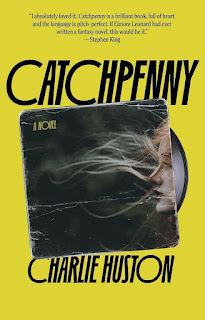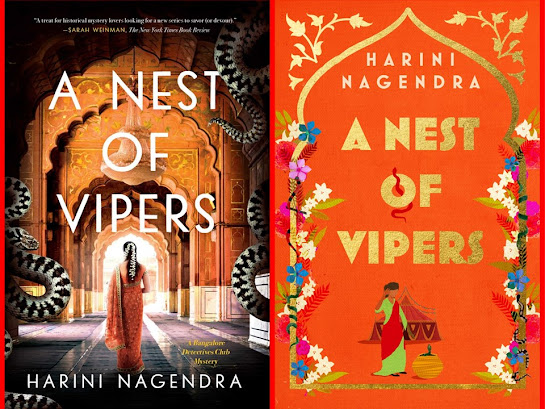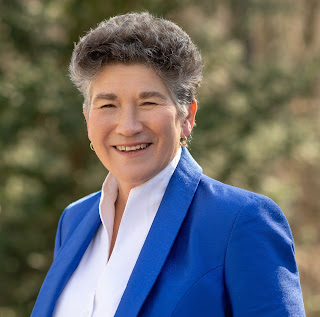Today, our guest post is from Kim Hays, a crime fiction author on the rise. She writes the gripping Polizei Bern procedural series, featuring Swiss cops Giuliana Linder and Renzo Donatello. It’s one of the best detective series you’ll ever read. The setting is fresh and engaging, the themes current and relevant, and the rich ensemble cast of characters shines, especially Giuliana and Renato. Never far from boiling over, their mutual attraction simmers restlessly throughout the series, adding spice and nuance to their complex working relationship.
Here’s what I thought of the first book in the series, Pesticide:
“Kim Hays's Pesticide is Switzerland's answer to Scandinavian noir. Fresh and oh so readable, you won't want to put it down."
Don’t want to take my word for it? How about Deborah Crombie, New York Times bestselling author of the award-winning Duncan Kincaid/Gemma James novels?
"Kim Hays brings a sparkling new voice to police procedurals, giving us engaging and realistically drawn detectives who struggle to balance their personal lives with the demands of a gripping investigation. Set against the fascinating backdrop of modern Switzerland, Pesticide will delight crime fiction fans--a standout debut for 2022!" —DEBORAH CROMBIE
Or how about George Easter at Deadly Pleasures Mystery Magazine?
"For aficionados of fine police detection and procedure, it doesn’t get better than Kim Hays’s Linder and Donatelli series. Puzzling mysteries, artful prose, and engaging characters abound in these Swiss-based treats for mystery fans of all tastes.” —GEORGE EASTER
A Fondness for Truth is the third installment of the series, and it’s out this week (April 16, 2024, Seventh Street Bools). I’m a huge fan of these books, and highly recommend them!
Meine Damen und Herren, ich präsentiere euch Kim Hays…
But What Is Your Book Really About?
When my German-speaking Swiss husband was a senior in high school, a teacher assigned his class a recently published novel to read; it was by a Swiss writer in his thirties who was just becoming famous. When the pupils and teacher discussed the book in class, my husband and some of his friends disagreed with their teacher’s interpretation of how it ended and argued with him about it. They rehashed the argument during lunch in the school cafeteria, still convinced their teacher was wrong.
So these four or five boys went to the school’s one payphone, looked up the author’s name in the phone book, called him—and he answered. Feeding coins into the slot from their pockets, they told the writer about the argument and asked him what he had meant by the ending.
“Oh, there’s no right or wrong interpretation,” he said. “It can mean different things to different readers.” The boys were crushed.
When my husband told me this tale years ago, I thought the author was a spoilsport. Now that I write novels myself, I still shake my head over him. To have a group of teenagers find your book so intriguing that they call you from their school to ask about its meaning—surely that’s a terrific thing to happen. Okay, so the kids were hoping to hear that their interpretation was right and the teacher’s was wrong. But they were also showing enthusiasm and asking for information, and all they got in return was a gobbledygook answer.
I thought of this story recently when I was invited to a book club meeting to discuss my first mystery, Pesticide. Usually, having an engaging discussion about any book but a classic is almost impossible if you are trying not to reveal the plot. If you can’t bring up what a book’s about, how can you say anything entertaining about it? This is a quandary that I imagine lots of authors and reviewers face. But at this book club meeting, I was going to have a chance to field all kinds of questions about Pesticide, and—since everyone in the room would have read it—I could debate about the plot, characters, and themes to my heart’s content.
The group welcomed me warmly. Many of them told me how much they’d enjoyed my book, and then . . . and then they were too kind to challenge what they’d read. Or perhaps plot, characters, and themes take on a certain inevitability once they are in print, making it hard for readers to see them as the results of an author considering, choosing, writing, changing, reconsidering, and choosing again—and perhaps making a bad decision.
Now I’ve been asked to attend another book club meeting to discuss Sons and Brothers, the second book in the Polizei Bern series. This time, I’m going to make it clear that every decision I made as a writer can be called into question. Other aspects of the novels should be open for discussion as well. Each of my mysteries is an entertaining story about how two police detectives solve a homicide. In telling those stories, I’ve introduced issues worth debating: organic versus conventional farming, the legalization of marijuana, the existence of a patrician class in Bern, and the idea of a universal service for young people, among others. Perhaps one of those themes will inspire a challenging question.
The third book in my series, A Fondness for Truth, just came out, so there hasn’t been time for any invitations to talk with readers. At least if I’m lucky enough to be asked to explain what this new book is really about—as the famous Swiss writer was asked by my husband and his friends—I’ll do my best to give a real answer.
—Kim Hays, A Fondness for Truth
A Fondness for Truth: Summary
Andi Eberhart is riding her bicycle home on an icy winter night when she is killed in a hit-and-run. Her devastated partner, Nisha, is convinced the death was no accident. Andi had been receiving homophobic hate mail for several years, and the letters grew uglier after the couple’s baby was born.
As Bern homicide detective Giuliana Linder pieces together the details of Andi and Nisha’s lives, her assistant Renzo Donatelli looks into Andi’s job advising young men who’ve been drafted intoSwitzerland’s civilian service. Working closely together on the case, Giuliana and Renzo are again tempted to become more than just friendly colleagues.
As both detectives dig into Andi’s life, one thing becomes clear: Andi’s friends and family may have loved her for her honesty, but her outspoken integrity threatened others, including, perhaps, her killer.






















